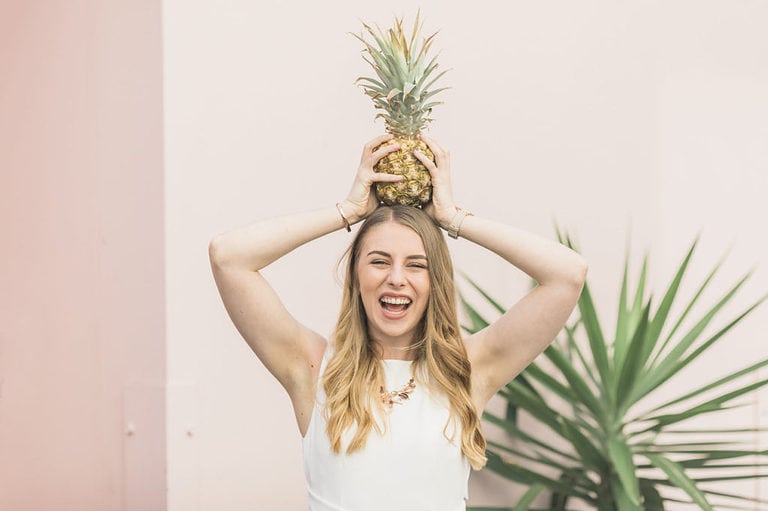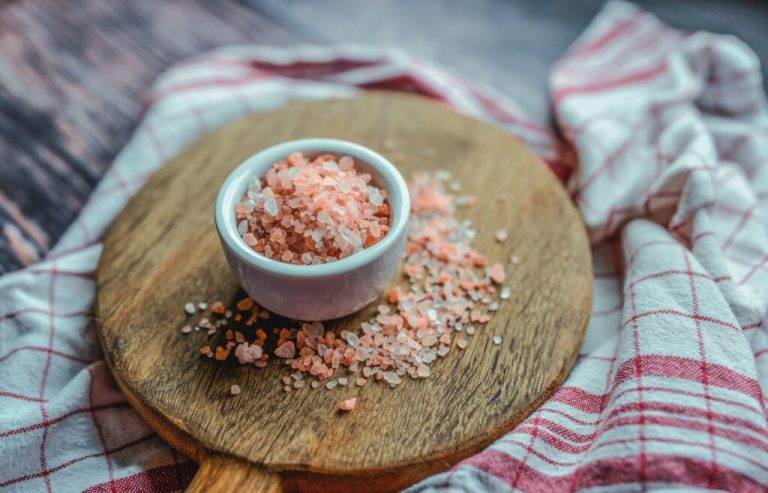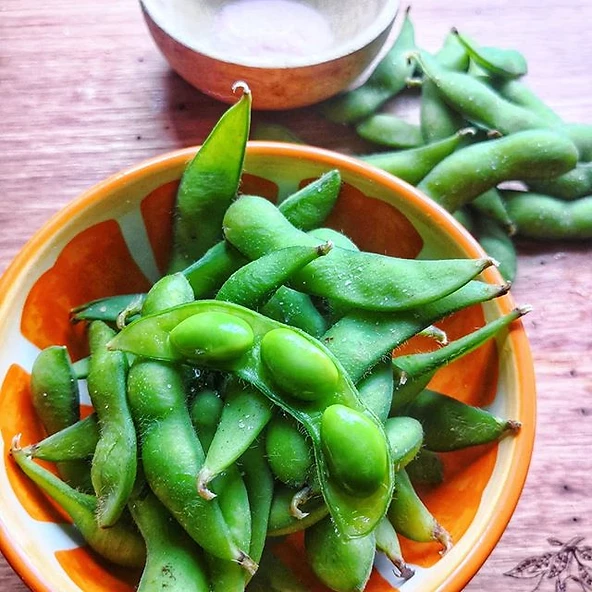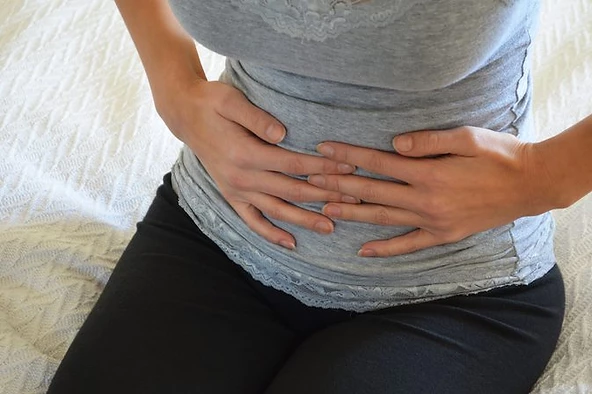5-8% of pregnancies in Australia are impacted by pre-eclampsia, a condition that can impose a risk to both baby and mother and is a leading contributor to pre-term delivery (Better Health Channel). For those identified as high-risk due to a previous occurrence of pre-eclampsia or another risk factor identified by your medical team, it is only natural to wonder what steps you can be taking to prevent pre-eclampsia from occurring.
As a PhD candidate and pregnancy dietitian here at The Dietologist, Kaylee Slater APD, is passionate about helping women have healthy pregnancies and reducing the risk of complications such as pre-eclampsia.
Let’s begin by understanding what preeclampsia and other hypertensive disorders of pregnancy (HDP) actually are.
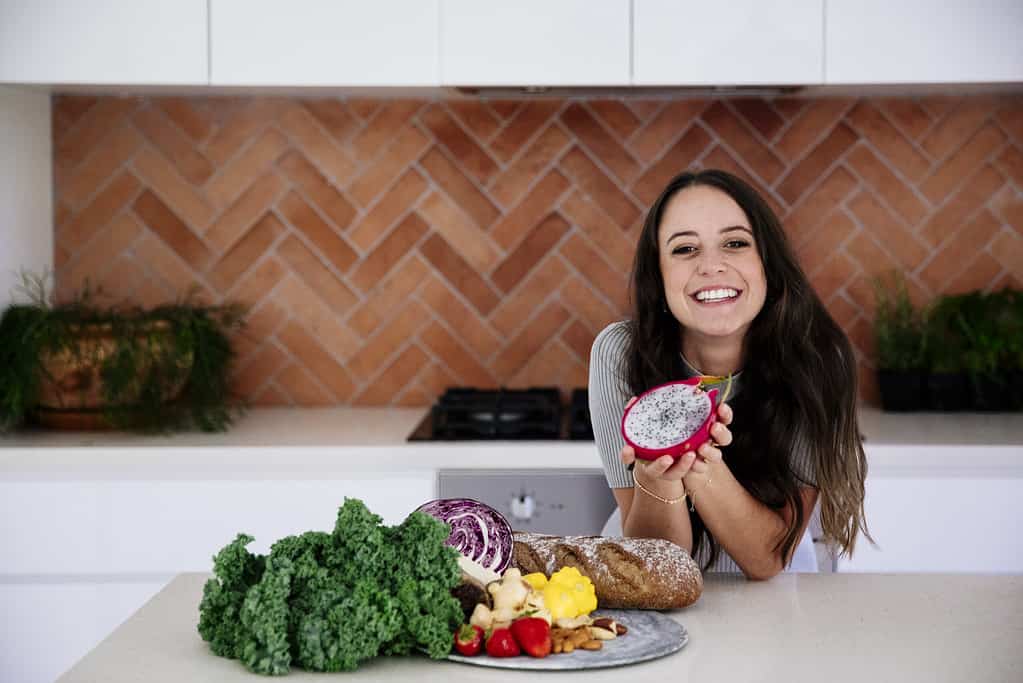
- Hypertension, or high blood pressure, is the most commonly reported medical problem during pregnancy (Ikem et al., 2019). HDP affects 8-10% of pregnancies worldwide and can lead to complications for both mother and baby (Ikem et al., 2019). Unfortunately, many women don’t receive much information on this topic until they are diagnosed, which can be frustrating and scary. HDP is an umbrella term that encapsulates multiple diagnoses including chronic hypertension, gestational hypertension, and pre-eclampsia.
- Chronic hypertension refers to high blood pressure that was present before pregnancy, diagnosed before 20 weeks gestation, or continues after 12 weeks postpartum. It affects approximately 5% of pregnancies and is on the rise (Lowe et al., 2015).
- Gestational hypertension, also known as pregnancy-induced hypertension, occurs for the first time during pregnancy (after 20 weeks gestation) and usually resolves by 12 weeks postpartum (Lowe et al., 2015).
- Pre-eclampsia is a multi-organ disease that commonly affects the cardiovascular and renal systems (aka the kidneys!). Its main characteristics include hypertension and proteinuria (protein in the urine). Although the exact cause is unknown, it is believed to be related to the placenta, oxygen deprivation, and biochemical changes. Some risk factors for HDP include a history of HDP in a previous pregnancy or a family history of pre-eclampsia, a prior history of chronic hypertension, diabetes, being older at the time of pregnancy, being at higher body weight before pregnancy and those pregnant with multiple (Lowe et al., 2015).

Can Diet Help Prevent Pre-eclampsia? Three NutrientsTo Focus On…
While we don’t have conclusive evidence about the role of nutrition in preventing HDP, Kay shares the three most researched nutrients specifically related to pre-eclampsia.
Calcium
Adequate calcium intake has been shown to reduce the risk of preeclampsia, especially in women with low calcium intake or those at increased risk (Lowe et al., 2015).
The recommended daily intake of calcium is 1000 mg per da (Eat for Health), which can be achieved through 2.5-3 servings of dairy or calcium-fortified alternatives (Eat for Health; Perry et al., 2022), for visual reference this equates to about 1 cup of milk, 200 g of plain yoghurt and 1-2 sandwich-sized slices of hard cheese every day.

Other non-dairy sources of calcium include lentils, beans, calcium-fortified tofu, and certain tinned fish. Incorporating high-calcium tuna or canned salmon with bones can be beneficial.
Vitamin D
Although the research is weaker for vitamin D, observational studies suggest that low levels may increase the risk of pre-eclampsia (Perry et al., 2022).
Vitamin D’s relationship with calcium, or having an adequate vitamin D status may play a role, but further investigation is needed (Perry et al., 2022).
Getting some sun exposure on your skin, adding in vitamin D-rich foods like eggs and oily fish, and considering supplementation if deficient (with professional guidance) are potential strategies to help give your vitamin D levels a boost!
Discover the Ultimate Food Safety Masterclass for a Worry-Free Pregnancy Journey!
Learn the Essential Tips for Food Safety in Pregnancy in one 1-hour Masterclass. Don’t Miss Out!
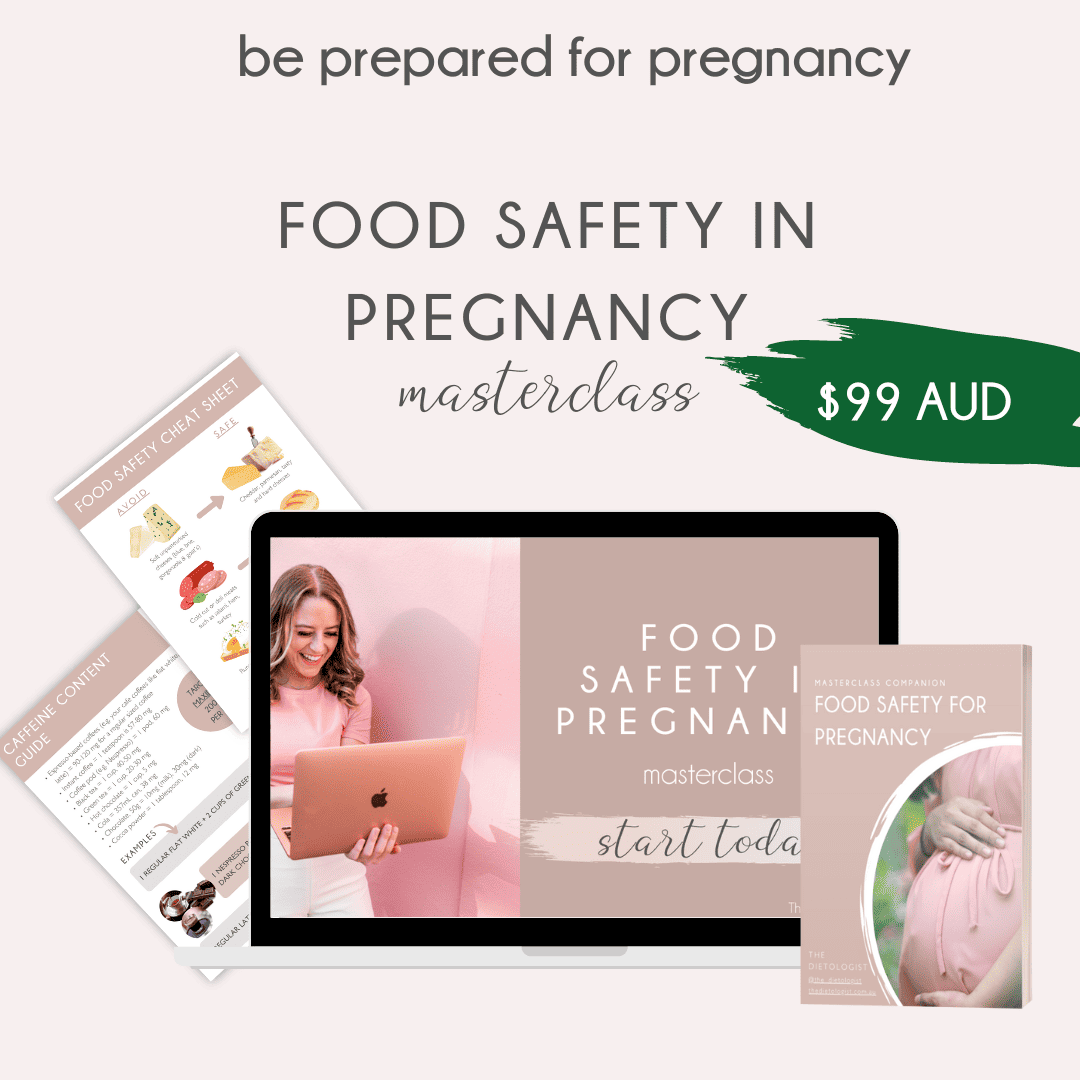
Sodium (Salt)
While a low-sodium diet may not specifically prevent pre-eclampsia, it might reduce the risk of chronic and gestational hypertension (Arvizu et al., 2020).
As a society, we already overdo the sodium, thanks to processed foods, takeaways and being used to preserve our food for longer, so most people stand to benefit of reducing sodium and salt intake.
Choose less processed foods and opt for low-sodium options whenever possible. Using dried herbs and spices whilst cooking can add flavour without the salt shaker.
Hot tip: Look on food labels and aim for sodium content below 400mg per 100g on nutrition labels, even better choose products with a sodium content below 120mg per 100g.
While the exact cause of HDP remains inconclusive, it’s important to note that even though blood pressure usually returns to normal after pregnancy, HDP is associated with a higher risk of chronic diseases later in life, such as type 2 diabetes, chronic high blood pressure, and heart disease (Williams, 2012).
Listen to more tips on preventing pre-eclampsia with Kaylee Slater APD on Episode 58 of our podcast!
Kaylee’s top nutrition tips for reducing your chronic disease risk Post-Partum After Pre-eclampsia
As an active researcher and PhD candidate in pre-eclampsia and hypertension in pregnancy, Kaylee Slater APD, from The Dietologist shares her top three tips for new mothers to prioritise their heart health & wellbeing after a pregnancy impacted by pre-eclampsia or hypertension to minimise the risk of future health concerns:
- Reduce sodium or salt intake. Check nutrition labels and aim for products with 120 mg of sodium per 100 grams or less.
- Replace saturated fats (butter, coconut oil, animal fats) with healthy unsaturated fats like omega-3 fatty acids (salmon, tuna, chia seeds) and monounsaturated fatty acids (avocado, olive oil, nuts & seeds).
- Increase your intake of wholegrains and cereals to maintain dietary fibre.

Understanding and Coping with Pre-eclampsia: It’s Not Your Fault!
Before we wrap up, it’s essential to remember that developing pre-eclampsia or any HDP is not your fault.
These are complex pregnancy complications that we are still learning about.
While we can take steps to reduce our risk, sometimes these health complications are beyond our control, and pre-eclampsia is often one of those.
By prioritising your nutrition, staying informed, and working closely with your team of health care professionals, such as a pregnancy dietitian you can empower yourself to have a healthier pregnancy and reduce the risk of pre-eclampsia.
Looking for ways to improve your diet and lifestyle during pregnancy? Get personalised advice, and apply to work with us one-on-one today – let’s develop a tailored plan to manage your risk of pre-eclampsia and hypertension in pregnancy and prioritise your health beyond baby’s arrival!


